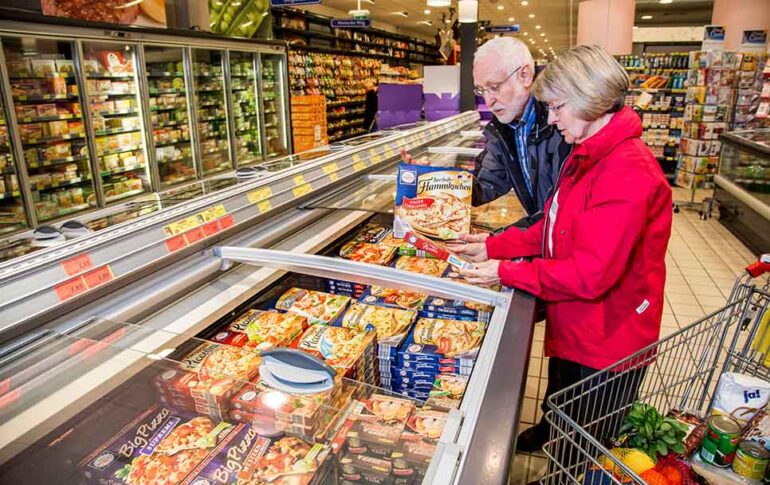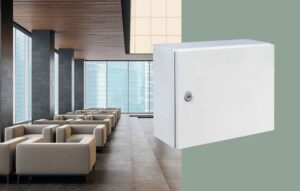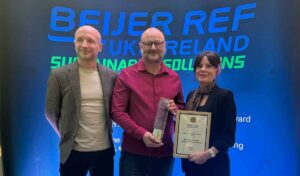Move to -15°C needs holistic approach
4th February 2025
UK: A leading refrigeration contractor has warned that a move to -15°C for frozen food storage may not deliver the benefits expected and could even create new problems.
The Move to -15°C initiative to raise frozen food temperatures from -18ºC to -15ºC in an effort to save energy and slash emissions is supported by a broad range of cold chain stakeholders. This includes leading global logistics companies and cold chain associations.
Supporters insist that temperature increases do not compromise food safety or quality and the technology, equipment and processes used to manage temperature-controlled logistics have advanced beyond recognition since the -18°C standard was set.
In a blog on the company’s website, Steve Shipp, MD of Chesterfield-based of Ultra Refrigeration, argues that the proposed move oversimplifies the complexities of cold storage and risks transferring costs down the chain to consumers, potentially compromising food quality and creating inefficiencies in other areas.
He insists that changing temperatures in frozen storage isn’t as simple as turning a dial and simply raising temperatures to -15°C without modifying existing equipment, settings and controls could result in inefficiencies.
“Depending on their flexibility, refrigeration packs may become less stable, with once fine-tuned compressors that are now too large for the application ‘hunting’ rather than finding a steady point. This can lead to reduced system stability, inefficiency and increased maintenance costs, all of which defeat the original intention,” he writes.
As maintaining a consistent temperature is crucial throughout the cold chain to maintain food quality and safety, a storage target of -15°C shrinks an important ‘safety buffer’ against any temperature increase.
“Any exposure to ambient temperatures risks pushing the product above -15°C, potentially leading to partial thawing. And if the next stage of the cold chain is also set to -15°C, there is little or no temperature differential to pull the temperature back down,” Shipp says.
“The reality is that minor variations are inevitable during cold chain transportation and unloading. For example, items are sometimes left on loading docks temporarily or placed in retail storage areas where temperature control may be inconsistent. Without the safety buffer at -18°C, any temperature increase is likely to cause visible thawing, which can compromise the product’s texture and quality before it even reaches consumers.”
He also argues that a shift to -15°C won’t necessarily reduce the total energy required for the cold chain, instead merely transfer the energy burden to the consumer: “Most household freezers are not designed to handle frequent refreezing, and they tend to be less efficient than commercial systems. Because partially thawed products will be entering home freezers, consumers will inadvertently bear the cost of re-freezing—both in terms of energy consumption and product quality.
“In an era of energy sensitivity, moving the problem down the chain to consumers could undermine sustainability goals rather than support them.”
Shipp suggests that while -15°C may seem sufficient for most foods, some products, like ice cream, require lower temperatures (down to -24°C) to prevent changes in texture and taste.
Instead of making a blanket change to storage temperatures, he advocates a more intelligent approach employing dynamic, intuitive controls. This approach would involve adjusting air and product temperatures more strategically within each storage environment to balance efficiency with quality.
Shipp cites the example of maintaining the storage of product temperatures around -15°C, while briefly lowering the air temperature to -18°C when needed. This method, he insists, would preserve the quality of frozen products without imposing the same energy demand as constant -18°C storage.
In August, Morrisons became the first UK supermarket to trial moving frozen food temperatures to -15°C in a trial at 10 of its stores. “It will be interesting to note the impact not just on energy use and emissions, but also on consumer perception of food quality,” Shipp noted.
“As the push for sustainability continues, it’s essential to take a holistic approach that addresses all aspects of the cold chain, rather than relying on simplistic solutions that might ultimately not deliver the promised benefits.”
Related stories:
UK associations join Move to -15ºC – 5 August 2024
UK: Two of the leading UK trade associations for the frozen food industry have joined a coalition exploring raising temperatures of frozen food to slash emissions. Read more…
Morrisons moves to -15°C freezer temperatures – 2 August 2024
UK: Morrisons claims to be the first UK retailer to move its frozen food temperatures from -18°C to -15°C in 10 of its stores. Read more…
Raising frozen temperatures could slash emissions – 29 November 2023
UAE: A coalition led by Dubai-based multinational logistics company DP World is calling for frozen food temperatures to be set at -15°C as standard to cut carbon emissions. Read more…







